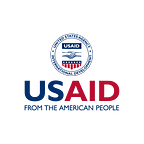Helping Communities in Northern Mozambique Find Refuge From Violence
John Grabowski, Regional Advisor for Southern Africa with USAID’s Bureau for Humanitarian Assistance, takes us on his recent trip to the town of Marupa in Cabo Delgado.
Since 2017, ongoing fighting in northern Mozambique has forced nearly 700,000 people to flee their homes in search of safety. Over the last year, the violence has skyrocketed to unprecedented levels, fueled by attacks from armed groups — quadrupling the number of internally displaced persons, especially in Mozambique’s Cabo Delgado Province. Now, humanitarian groups are scrambling to meet rapidly growing needs.
Shelter, in particular, has become a priority. The vast majority of people are living in cramped quarters with generous host families whose meager resources are quickly depleting. Others are staying in overcrowded temporary camps that often lack clean water, adequate hygiene facilities, and measures to ensure their safety.
A few weeks ago, I traveled to the town of Marupa in southern Cabo Delgado where our partners Catholic Relief Services and Caritas are bolstering efforts to house displaced families.
The Government of Mozambique recently established a resettlement site on the edge of town where nearly 700 families are living in newly constructed adobe huts. Many had travelled more than 200 miles across dangerous roads patrolled by armed groups to reach Marupa and were living in tents or public buildings, such as schools, for several months before the site’s development. Even though they now had shelter, most of these new residents had limited sources of food and income and few material possessions to start rebuilding their lives.
At the resettlement site, I worked with CRS and Caritas to help distribute relief supplies provided by USAID’s Bureau for Humanitarian Assistance, including tarps, blankets, water containers, and kitchen supplies to families in need.
Extra precautions were taken because of COVID-19, such as requiring people to maintain a safe distance while waiting, installing handwashing stations near distribution points, and conducting awareness-raising sessions on COVID-19 prevention measures.
While at one distribution point, I spoke to several women whose family members were helping them carry relief items back to their huts. They told me how grateful they were to receive items; it was the first time they had received help since arriving at the resettlement site, besides previous distributions of USAID-supported food. They were particularly happy about the high quality of the blankets and kitchen utensils.
One of the women, Maria Joaquim, explained that the shelter supplies she had received were helping her family get back on their feet. The ongoing violence had forced her, one of her sons, and three grandchildren to abandon their home more than 100 miles away and travel southwards to the nearby town of Chiure, where they stayed in a temporary camp for several weeks. With the rainy season fast approaching, Maria was grateful to have a tarp to cover her hut. She had already begun cultivating a nearby plot of land so that her family would have food in the coming months.
The United States is the largest donor of humanitarian assistance to Mozambique. In the northern part of the country, USAID is helping thousands of displaced families like Maria’s. As the violence increases and causes humanitarian needs to rise, USAID is providing agriculture assistance, emergency food, shelter, and access to water, sanitation, and hygiene. We’re supporting programs that help protect the vulnerable, including women and children. We’re supporting logistics and humanitarian coordination efforts.
The loss that Maria and others spoke of is great; many of these families have lost everything. But I also saw resilience and determination in people’s faces during my visit to Cabo Delgado. USAID remains committed to helping them rebuild their lives and hope for the future.
Learn more about USAID’s humanitarian work in Mozambique.
